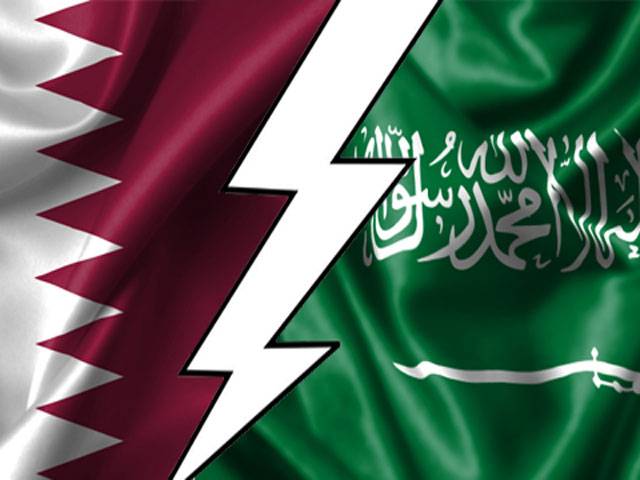RIYADH - Saudi Arabia and its allies unveiled a "terrorist" blacklist on Tuesday of 18 organisations and individuals suspected of links with extremism that they said had ties with regional rival Qatar.
The move by the four Arab governments came despite mounting international pressure to compromise in their weeks-old boycott of their fellow US ally.
Saudi Arabia, the United Arab Emirates, Bahrain and Egypt last month released a list of 59 people and 12 groups they alleged had links to Qatar, accused by the four states of ties to extremist groups in the region. Qatar has denied the allegations. Tuesday's list blacklisted nine charity and media organisations and nine individuals "directly or indirectly linked to Qatari authorities" as "terrorist", read a joint statement released by the four states. "We expect Qatari authorities to take the next step and prosecute the terrorist groups and people," the statement said. "The four countries and their international partners will ensure that Qatar has ceased its support and funding of terrorism, has stopped welcoming terrorists and has stopped spreading extremist and hate speech," it added. The Saudi-led bloc, which now blacklists 89 persons and organisations accused of ties to Islamist groups they say are backed by Qatar, also dismissed an amendment last week to Doha's counter-terrorism law as "insufficient".
Saudi Arabia and its allies have been boycotting Qatar since June 5 in the region's worst diplomatic crisis in years.
They sealed the emirate's only land border, ordered its citizens to leave and closed their airspace and waters to Qatari flights and shipping.
They demanded that Qatar break its longstanding ties with the Muslim Brotherhood, blacklisted as a "terror group" by the four governments although not by the international community.
They also demanded that it close broadcasting giant Al-Jazeera and a Turkish military base, and fall in line with Saudi-led policy in the region, particularly towards Iran.
Qatar has dismissed the demands as a violation of its sovereignty and has received significant support from its ally Turkey.
US Secretary of State Rex Tillerson, who last week spent four days in the region trying to broker a settlement of the crisis, has voiced satisfaction with Qatar's efforts to address any suspicion of terror funding.
The four governments on Tuesday blacklisted three organisations based in Yemen and six based in Libya accusing them of ties to Al-Qaeda.
Meanwhile, Turkish President Tayyip Erdogan on Tuesday described his trip to the Gulf to deal with the Qatar crisis as "productive and successful", following two days of talks that appeared to yield no immediate progress towards healing the rift.
"The visits on the Gulf tour were productive and successful," Erdogan told lawmakers from his ruling AK Party at a parliamentary meeting.
"The contacts we have made during this visit have been useful, and we will continue our efforts for the stability and peace of the region with increasing determination."
Erdogan left Qatar on Monday after two days in the Gulf trying to mediate in the worst row among Arab states for years but there was no sign he had made any progress. Turkey has been Qatar's most powerful ally in the dispute.
A senior Turkish official said the results of the trip would take time to become apparent. "The role Saudi Arabia will take in resolving the issue is vital," said the official, who spoke on condition of anonymity.
"We will see that there have been advancements in some critical issues," he said. "We may see more concrete developments on these in the coming period."






